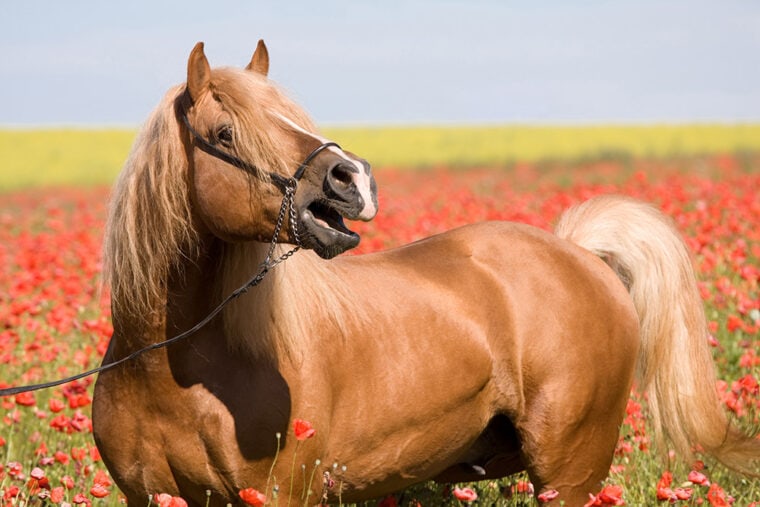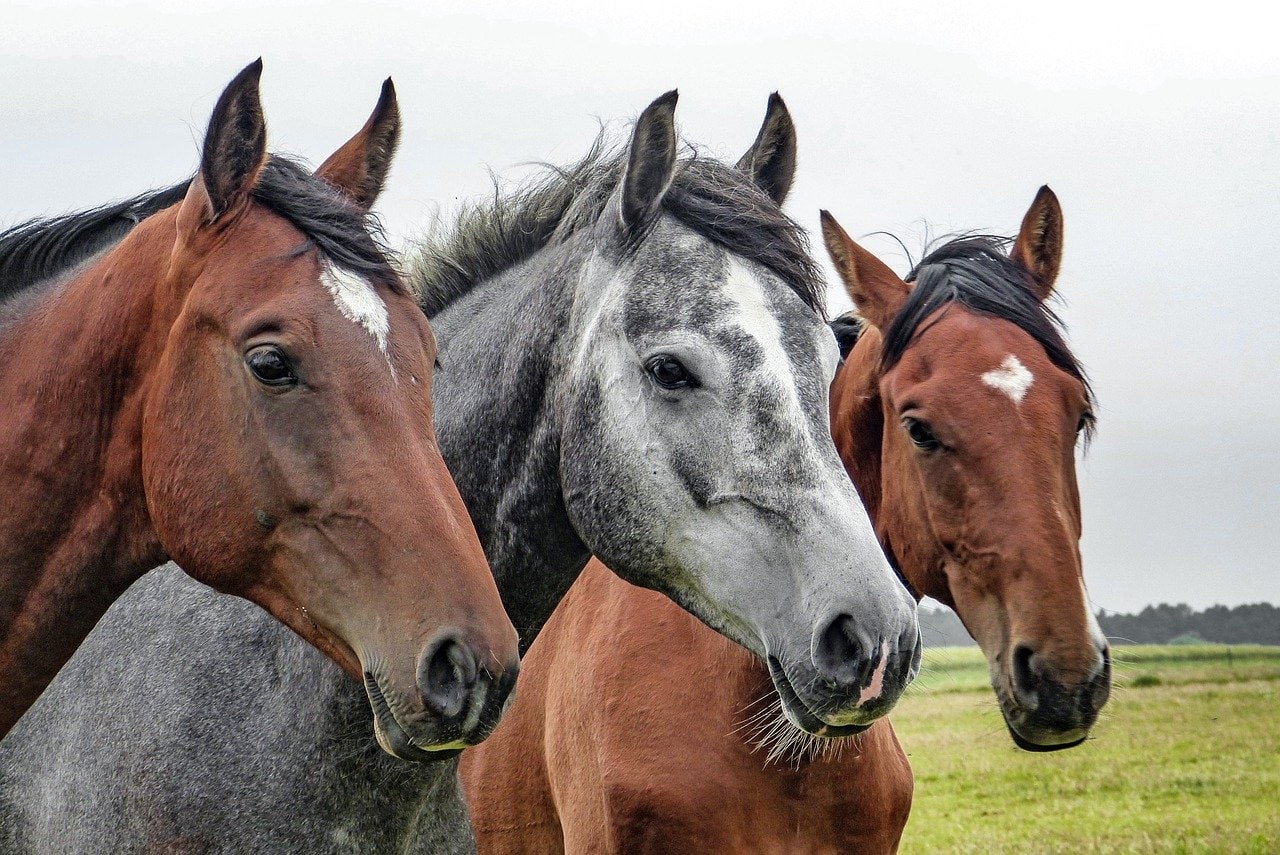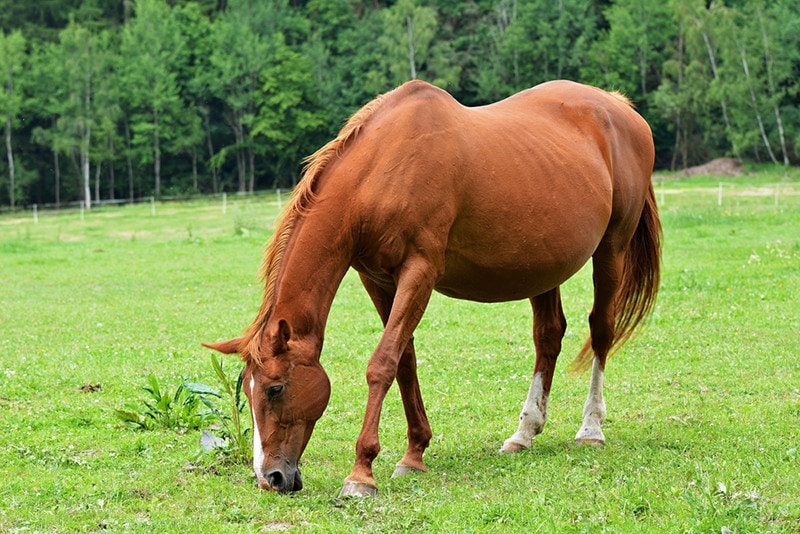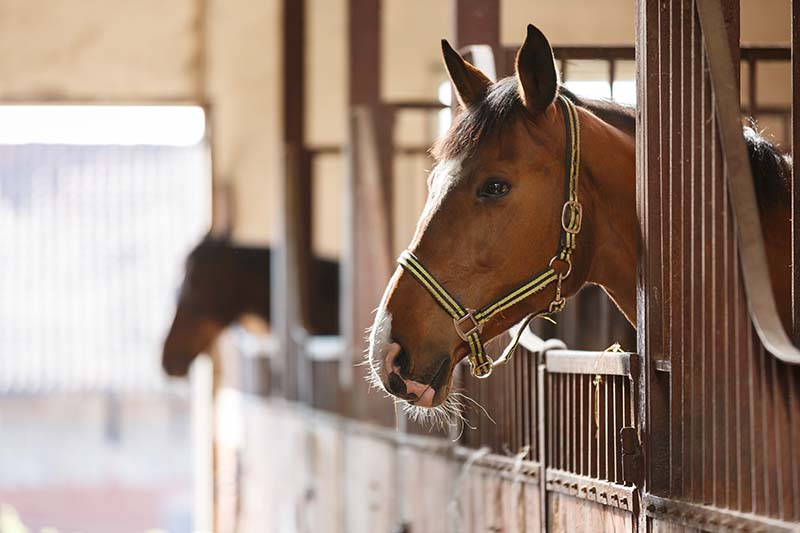
Horses are exciting to watch, fun to ride, and a joy to spend time with. They come in many different colors and a few different sizes. These beautiful animals are awesome at sports, they are hard workers, and they like to communicate with each other and their human companions. But what are they saying when they make a certain noise? Let us explore this topic together! Here are seven common horse sounds and what they mean.
The 7 Common Horse Sounds
1. The Whinny or Neigh
Referred to both as a whinny and a neigh, horses make this noise for a few different reasons. The biggest reason a horse tends to whinny or neigh is that they are excited to see a human or horse companion — it is their way of being welcoming. Horses also whinny or neigh when they are trying to catch the attention of or find other horses. Another reason that a horse may make this noise is to help calm their separation anxiety when they depart the company of another horse or a close human companion.
2. The Nicker
A horse nicker is like a call for attention. Nickering usually happens when a stallion is trying to get the attention of a mare when it is time to mate. Also, mares tend to nicker at their foals when they wander too far away. It is their way of calling the kids back to a safe distance so they can be best watched after and protected. Sometimes, stallions and mares will nicker at their humans if they have deeply bonded with them.
3. The Snort
Snorting is thought of as a positive form of horse communication. When a horse makes this noise, they are letting others around them know that they are happy and content. Snorting is typically accompanied by other forms of positive communication, such as a swishing tail and a calm facial reaction. Snorting might happen when a horse gets access to their favorite treat, while they are being groomed, and when they greet farm animal companions that they see only occasionally.
4. The Squeal
A horse squeal is not usually a good sign. Squealing is often a sign of violence between horses. Females might squeal to reject the advances of males. Some horses squeal as a warning when they meet strange horses for the first time. Squeals are commonly heard just before a squabble breaks out between two horses. The bottom line is that squealing is almost always a sign of aggression.
5. The Groan
Groaning is not uncommon for horses. If the noise occurs while the horse is being ridden, training, or running and jumping, chances are that the horse is in pain. If a groan happens while a horse is being dressed for riding, their saddle might be too small and tight or painful for another reason. On the other hand, a horse might groan when they are rolling in grass, sand, or dirt, where they feel comfortable and relaxed. Groans could also be a sign of boredom for horses stuck in stalls for long periods.
6. The Sigh
Sighing seems to be a noise that horses make mostly around humans. They love to sigh while relaxing and being petted. They are also fond of sighing when they get professionally massaged. Grooming, sunbathing, and cuddling up to a close horse friend are other reasons that you might hear a horse resort to sighing. But just because a horse does not sigh doesn’t mean that they are not enjoying their relaxing moments — not all horses sigh.
7. The Scream
Screaming is not commonly heard by horses that are living in captivity. However, wild horses will readily scream when getting into a fight with another horse or after being severely injured. Domestic horses are more protected from predators and natural elements that could injure them. They are also kept away from rival horses and horse packs. Therefore, they would usually only scream if they have excruciating internal pain due to a riding injury or illness.
In Conclusion
Horses are generally quiet, so when they do make noise, they are almost always trying to communicate. Learning about the different sounds that horses make and why they make them can help you better understand how a horse functions and how we can best support them as their human caretakers. Which horse noise is your favorite, and why? We want to read all about your thoughts in our comments section.
Featured Image Credit: Lenkadan, Shutterstock









